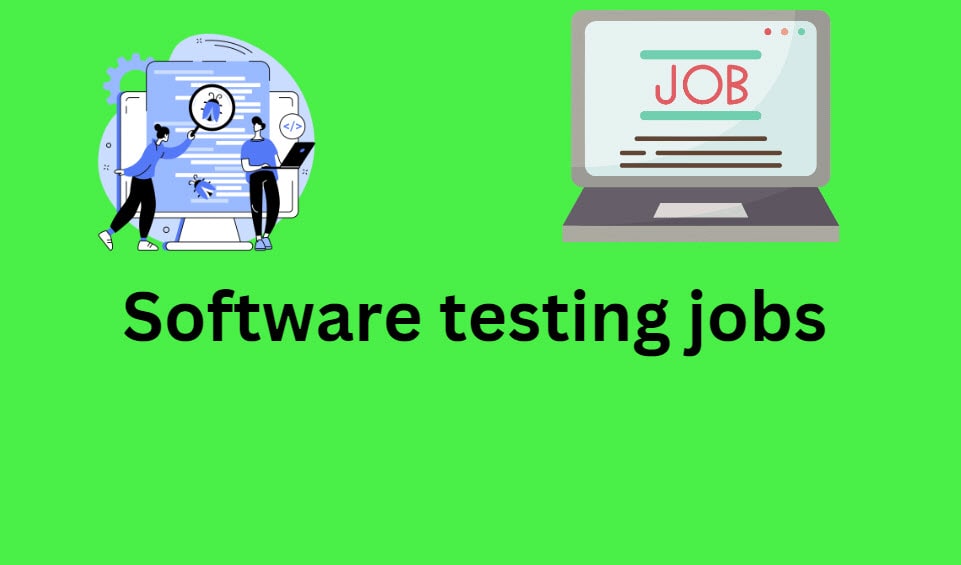Software testing is a crucial part of the software development process. It involves checking software to identify any flaws or weaknesses that could impact performance, security, or functionality.
Software testing jobs
Here are a few examples of jobs in the field of software testing:
- Software Test Engineer: This role involves creating test cases, executing them, and then documenting the results. They often work in close collaboration with developers and stakeholders to ensure the software product meets quality standards.
- Quality Assurance Analyst: QA analysts are involved in all phases of the software development lifecycle. Their job is to identify any potential problems with a software product and work to prevent those problems. They often create and implement strategies for improved testing processes.
- Automation Test Engineer: Automation test engineers are responsible for designing, writing, and executing automated test scripts. This job requires strong programming skills because these engineers typically use automation tools to write scripts that will conduct tests.
- Performance Test Engineer: These engineers focus on how a system is performing under a particular workload. They identify potential bottlenecks and work to enhance the overall performance of the system.
- Security Test Engineer: Security test engineers focus on identifying vulnerabilities and risks in a system. They work to ensure the software is secure and safe from potential threats.
- Test Manager: A test manager supervises all testing activities during every stage of a software development lifecycle. They manage a team of testers, monitor the testing process, and ensure testing goals are met.
- Usability Tester: These testers focus on the user’s experience. They test the interface and overall user interaction with the software.
FAQs
Here are some Frequently Asked Questions (FAQs) regarding software testing jobs:
1. What does a software tester do?
A software tester plays a crucial role in the software development process. Their primary responsibility is to evaluate software applications to detect and help correct bugs, ensuring the product’s functionality aligns with the specifications. This process often involves creating test plans, conducting testing procedures, documenting defects, and communicating findings to the development team.
2. What skills are required for a software testing job?
Software testers need a blend of technical and soft skills. On the technical side, understanding software development languages, knowledge of testing methodologies and tools, familiarity with databases, and grasping system architectures is essential. Soft skills include analytical thinking, attention to detail, problem-solving abilities, excellent communication skills, and the ability to work collaboratively.
3. What qualifications do I need to become a software tester?
While a bachelor’s degree in computer science or a related field is often preferred, it’s not always required. Many testers have degrees in other areas or are self-taught. Certifications like ISTQB can add credibility and demonstrate commitment to the field. Practical experience, whether through an internship, personal projects, or entry-level roles, is highly beneficial.
4. Is there a demand for software testers?
Yes, the demand for software testers has consistently been high and is expected to grow with the evolution of technology and increasing reliance on software across industries. As more organizations embrace agile methodologies and DevOps practices, the need for testers who can work closely with developers and operations teams to streamline and automate testing is rising.
5. What is the career path for a software tester?
Software testers often start as junior or associate testers, gaining experience and knowledge about specific domains or tools. With time, they can progress to senior or lead tester roles, managing testing processes or teams. Further advancement can lead to roles like test manager, quality assurance manager, or consultant. Some software testers might transition into related roles like business analysts, and project managers, or move into development roles.
6. Can a software tester work remotely?
Yes, many software testing roles allow for remote work, especially since the COVID-19 pandemic has pushed many companies to adopt flexible working arrangements. The nature of software testing work, which often involves using online tools and collaboration software, lends itself well to remote work.
All these roles require a different set of skills, but some common requirements include problem-solving skills, attention to detail, understanding of software development lifecycle and methodologies, knowledge of at least one programming language, and familiarity with testing tools and software.

My name is Madhu, and I’m a certified Test Consultant with more than 16 years of hands-on experience developing and maintaining manual and Test Automation in the Software industry. I have experience with automation tools such as Selenium, Katalon Studio, etc.
